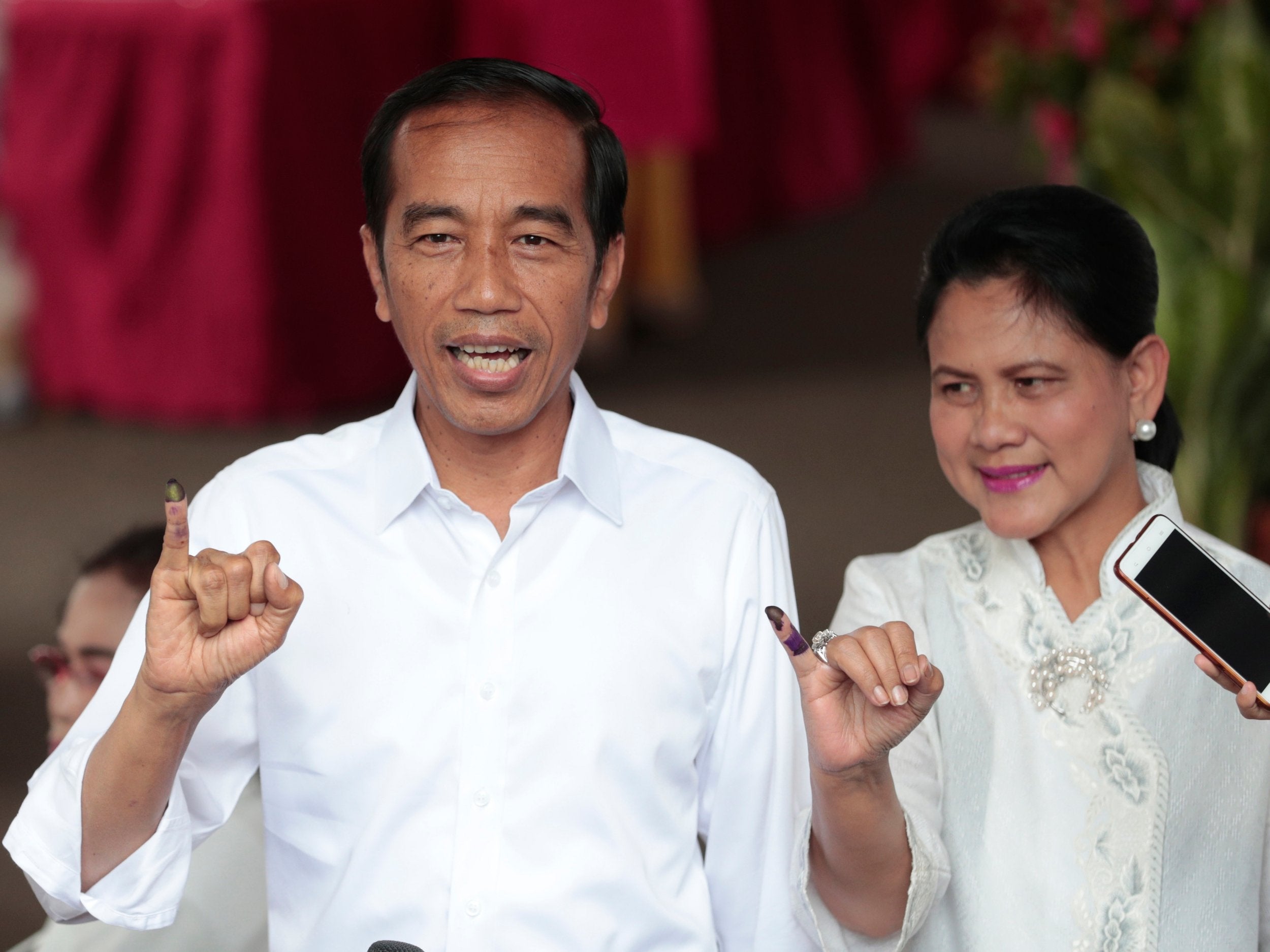Indonesia election: President Joko Widodo on course for second term, early results show
Early counts have proved reliable in past elections

Your support helps us to tell the story
From reproductive rights to climate change to Big Tech, The Independent is on the ground when the story is developing. Whether it's investigating the financials of Elon Musk's pro-Trump PAC or producing our latest documentary, 'The A Word', which shines a light on the American women fighting for reproductive rights, we know how important it is to parse out the facts from the messaging.
At such a critical moment in US history, we need reporters on the ground. Your donation allows us to keep sending journalists to speak to both sides of the story.
The Independent is trusted by Americans across the entire political spectrum. And unlike many other quality news outlets, we choose not to lock Americans out of our reporting and analysis with paywalls. We believe quality journalism should be available to everyone, paid for by those who can afford it.
Your support makes all the difference.Incumbent president Joko Widodo is on course for victory in Indonesia's election, the first unofficial results show, with one count putting him 13 percentage points ahead of his rival.
Pollster CSIS gave Mr Jokowi, as he is universally known, 56.7 per cent with more than half of the vote counted, while the former general Prabowo Subianto lagged behind on 43.3 per cent.
Another count, by the Kompas newspaper, gave Mr Jokowi 55.45 per cent to Mr Prabowo's 44.55 per cent. Indonesia's election body authorises these "quick counts" in lieu of exit polls, with official results taking many days to be confirmed.
Produced by reputable news outlets and survey organisations, the early counts have proved reliable in past elections. Another four organisations also had Mr Jokowi winning by between 7.5 and 11.6 percentage points.
Indonesia voted on Wednesday in one of the most logistically challenging single-day elections ever held. More than 192 million people were eligible to cast their ballots and asked to choose both a president as head of the government and representatives for two national assemblies.
The crucial presidential race pitted Mr Jokowi, a former furniture salesman whose victory in 2014 was seen as finally breaking the hold on power of Indonesia’s deeply entrenched military and political elites, against Mr Prabowo, a self-styled strongman who cosied up to the country's powerful hardline Islamist factions in a bid to avoid a repeat of his 2014 failure.
During campaigning, Mr Jokowi highlighted his track record from his five years in power, pointing to major infrastructure developments including ports and toll roads, as well as solid yearly growth of around 5 per cent.
Mr Prabowo ran a fear-based strategy, warning that Indonesia risked being taken over by foreign influences - most likely referring to China - or the breakup of the archipelago nation, without a strong leader at the helm.
Mr Jokowi said the initial results indicated he had won, but called on his supporters to be "patient" and wait for the offiical tally announced by the election commission.
"Indications from exit polls and quick counts, we have seen all, but we must be patient and wait for the KPU's (election commission's) official tabulation," he told a news conference, during which he said the elections had been "honest and fair".
"Let's all reunite as brothers and sisters, after the legislative and presidential election," he said.
Asked to comment on the "quick count" results, Prabowo campaign spokesman Dahnil Anzar Simanjuntak said that numbers based on 50 per cent of votes was not enough.
"We will wait," he said.
A senior government official close to the president said before the election that a win for Mr Jokowi with 52-55 percent of the vote would be a "sweet spot", and enough of a mandate to press on with, and even accelerate, reforms.
The winner may be known by late on Wednesday, though official results will not come until May. Any disputes can be taken to the Constitutional Court where a nine-judge panel will have 14 days to rule on them.
Join our commenting forum
Join thought-provoking conversations, follow other Independent readers and see their replies
Comments